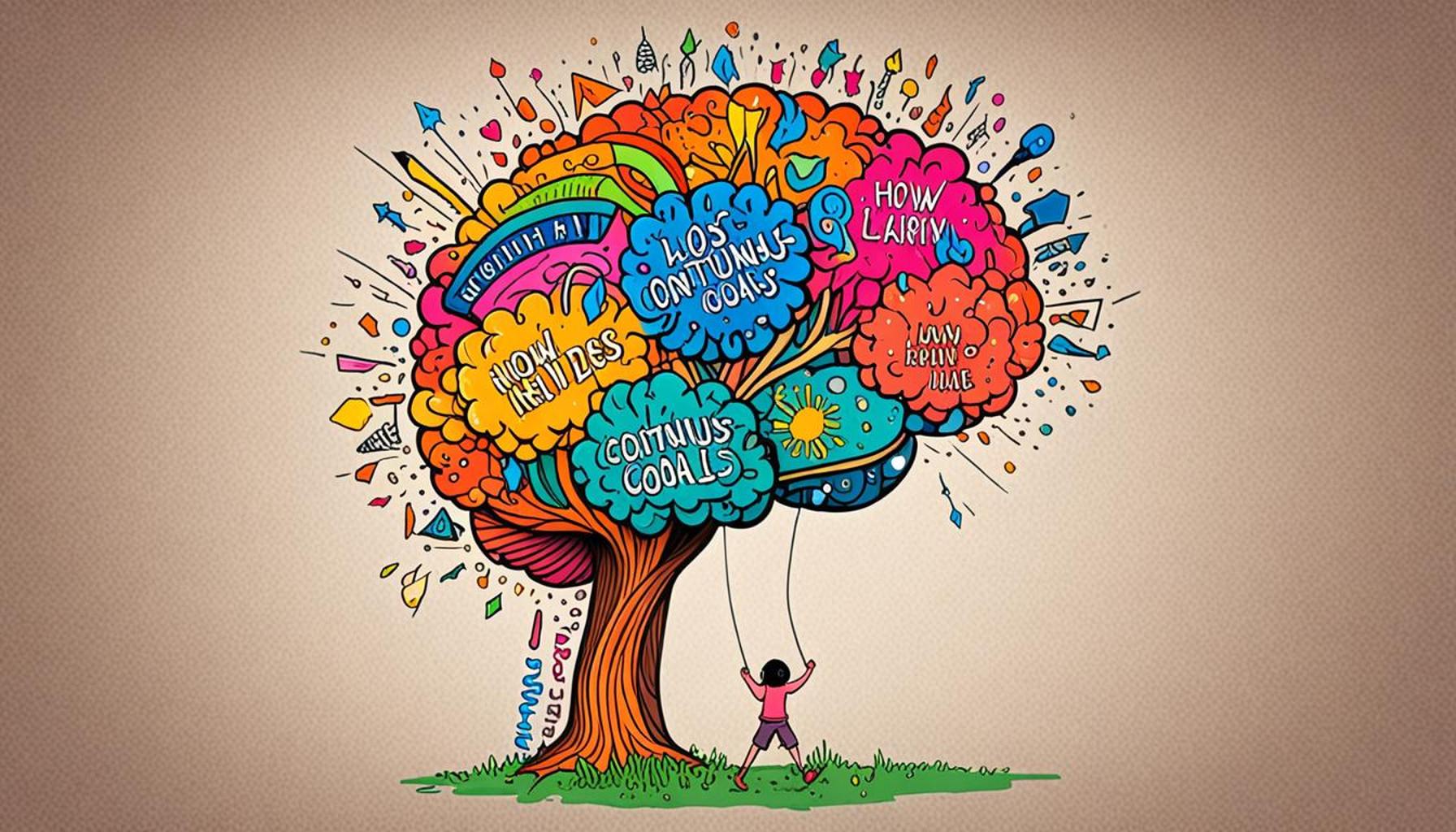The Role of Performance Goals in Motivation and Self-Confidence

The Importance of Performance Goals in Personal and Professional Growth
In today’s fast-paced world, the pursuit of performance goals is essential for anyone looking to increase motivation and boost self-confidence. Performance goals serve as a roadmap, guiding individuals toward achievement and instilling a sense of purpose. They are especially relevant in highly competitive environments, such as Nigeria, where both personal and professional aspirations abound.
Performance goals are distinct in their emphasis on measurable outcomes, which can significantly influence personal and professional growth. By focusing on tangible results, individuals can chart their progress, allowing for self-reflection and adjustment as needed. Here are some critical aspects to consider regarding performance goals:
- Specificity: Goals should be clear and defined, making it easier to track progress. For example, a student might set a goal to improve their mathematics score from 70% to 85% in the next exam, rather than simply aiming to “do better.”
- Challenge: They should stretch one’s abilities while still being attainable, encouraging perseverance. For instance, a small business owner might aim to increase sales by 30% over the next year, pushing them beyond their comfort zone but still within reach.
- Feedback: Regular assessments help individuals understand their strengths and areas for improvement. A fitness enthusiast may track their progress by measuring weight loss or stamina improvement weekly to make informed adjustments to their regimen.
In Nigeria, where competition is fierce across various sectors—from technology to agriculture—performance goals can act as powerful motivators. These goals not only enhance self-efficacy but also inspire a culture of success across communities and industries. The government’s initiatives aimed at promoting entrepreneurship, such as the National Enterprise Development Programme, emphasize the importance of setting clear performance goals for aspiring business people.
Take, for example, the growing emphasis on education and entrepreneurial endeavors among Nigerian youth. By setting clear performance goals, students and budding entrepreneurs can sharpen their focus and foster resilience, essential traits in today’s economy. In the field of education, students that set specific academic targets are often better equipped to navigate the rigors of their studies, leading to improved graduation rates. Similarly, entrepreneurs who establish performance targets—like reaching a specific number of customers or launching new products—tend to experience greater business success.
Understanding how performance goals enhance motivation and self-confidence can be instrumental for individuals seeking to elevate their personal and professional journeys. In conclusion, when approached strategically, performance goals can serve as a catalyst for growth, enabling individuals to reach their full potential and contribute positively to the wider community.

LEARN MORE: This related article may interest you
How Performance Goals Drive Motivation and Build Self-Confidence
At the heart of personal development lies the profound connection between performance goals, motivation, and self-confidence. To grasp this relationship, one must understand that performance goals are not merely benchmarks; they create a structured path for individuals to follow in their journey of self-improvement. By establishing clear objectives, individuals are more likely to remain focused and committed, fueling their motivation and reinforcing their self-confidence.
The process begins with motivation, which is the driving force behind every goal. In Nigeria, where aspirations are often influenced by a myriad of socio-economic factors, setting realistic performance goals can ignite a spark within individuals, pushing them to pursue their dreams. For instance, a recent survey indicated that Nigerian youths who set specific educational and career goals are 60% more likely to remain motivated in their endeavors compared to those without clear objectives. This statistic underscores the importance of establishing performance goals that resonate personally and align with broader aspirations.
Another crucial element in this interplay is the concept of self-efficacy. When individuals set and achieve performance goals, they begin to develop a belief in their capabilities, which is essential for fostering self-confidence. This self-efficacy can be observed in various contexts. For example, a young entrepreneur in Lagos who sets a target to expand their customer base by 20% over six months is not just chasing figures; they are cultivating a sense of self-worth and belief in their venture’s viability. Such small victories accumulate, significantly bolstering their self-confidence and encouraging them to take on even bigger challenges in the future.
The benefits of integrating performance goals into daily routines can be further elucidated through the following key aspects:
- Progress Tracking: Being able to measure progress against set performance goals allows individuals to witness their incremental achievements. This visibility can serve as a powerful motivator, pushing them to strive for more, as seen in students who monitor their grades week by week.
- Increased Resilience: Encountering challenges is inevitable, yet the act of setting and pursuing performance goals equips individuals with resilience. Their dedication toward achieving these goals often enables them to overcome setbacks, fostering a mindset that is crucial in the competitive landscape of Nigeria’s job market.
- Positive Reinforcement: Achieving performance goals often brings a sense of accomplishment, which reinforces self-confidence. Celebrating these achievements, no matter how small, can create a positive feedback loop that encourages further goal-setting and achievement.
In a country teeming with potential, understanding the dynamics of how performance goals impact motivation and self-confidence is invaluable. By encouraging the practice of setting specific, challenging, and attainable performance goals, individuals not only enhance their personal and professional lives but also contribute to a culture of growth and empowerment within their communities. This approach fosters an environment where dreams can be pursued with vigor, ultimately leading to a more robust society.
| Performance Goals | Impact on Motivation and Self-Confidence |
|---|---|
| Specific Goals | By setting clear and specific performance goals, individuals can maintain focus and direction, which enhances motivation. This clarity empowers individuals, leading to increased self-confidence as they track their progress and achieve milestones. |
| Challenging yet Attainable Goals | When goals are challenging but attainable, they stimulate effort and persistence. This balance is crucial, as achieving such goals reinforces a person’s belief in their capabilities, fostering a cycle of enhanced motivation and self-efficacy. |
Setting performance goals is not merely about achieving targets; it is a dynamic tool that shapes an individual’s journey towards success. Specificity and challenge are key components that influence motivation and self-confidence significantly. When individuals engage with goals that are clearly defined, they are more likely to commit to these objectives. Such commitments, in turn, boost their self-esteem as they witness tangible progress over time. Moreover, incorporating the aspect of challenge ensures that individuals remain engaged and willing to stretch their limits without feeling overwhelmed. This psychological interplay between goal setting and achievement contributes significantly to the development of motivation and self-confidence. By exploring various strategies for effective goal setting, individuals can harness their potential fully, paving the way for sustained success. In essence, understanding the nuances of performance goals may lead to a deeper appreciation of their role in fostering motivation and self-assurance in both personal and professional contexts.
CHECK OUT: Click here to explore more
The Significance of Goal-Specific Strategies for Enhanced Performance
Building upon the foundational role of performance goals in fostering motivation and self-confidence, it is essential to delve into specific strategies that can optimize their effectiveness. In Nigeria, individuals often face unique hurdles, including economic challenges and limited access to resources, which makes adopting the right strategies paramount for success. Here, we explore impactful goal-specific strategies that can help individuals navigate their paths toward achievement.
One powerful approach to setting performance goals is the SMART criteria—Specific, Measurable, Achievable, Relevant, and Time-bound. This framework encourages a structured thinking process vital for formulating effective goals. For instance, instead of setting a vague goal like “I want to be successful,” an entrepreneur might redefine it as “I want to increase my monthly sales by 15% within the next six months.” Such clarity enhances focus and helps track progress, leading to a sense of accomplishment that significantly boosts self-confidence.
Moreover, accountability partners can play a transformative role in goal attainment. In Nigeria, the culture of communal living and support can be harnessed by forming goal-oriented groups where individuals share their objectives and progress. This not only creates a system of accountability but also enriches motivation through communal encouragement. For example, a group of university students might meet weekly to discuss their academic targets, providing feedback and celebrating successes, thus fostering a collective spirit of growth and confidence.
The integration of mindfulness techniques can further bolster the positive impact of performance goals. Mindfulness cultivates awareness and presence, enabling individuals to manage stress and emotions more effectively, which are crucial during challenging times. A study published in the Journal of Applied Psychology indicates that individuals who practice mindfulness while pursuing their goals report higher levels of motivation and self-efficacy. In a context where pressure can derail ambitions, these techniques can empower Nigerians to maintain focus and enthusiasm as they advance toward their performance milestones.
Additionally, embracing a growth mindset is vital in the context of performance goals. Research by psychologist Carol Dweck emphasizes that individuals who believe that abilities can be developed through hard work and dedication are more likely to embrace challenges and persist in the face of setbacks. This mindset is particularly essential in Nigeria’s diverse landscape, where resilience is necessary for overcoming obstacles. By adopting a growth mindset, individuals can see failures as stepping stones rather than roadblocks, thereby enhancing their motivation and developing greater self-confidence through continuous effort.
Furthermore, utilizing visualization techniques can serve as a practical tool for achieving performance goals. Imagining successful outcomes not only boosts motivation but also enhances an individual’s belief in their capabilities. A study conducted by the University of Nigeria, Nsukka, found that athletes who practiced visualization techniques could outperform their peers who did not use these strategies. This principle can be applied across various fields, from sports to business, reinforcing the connection between mental imagery and goal achievement.
In conclusion, the synergy of performance goals and the strategies outlined is essential for cultivating motivation and nurturing self-confidence. By leveraging the SMART criteria, accountability partners, mindfulness, a growth mindset, and visualization techniques, individuals can effectively navigate their paths towards success. This holistic approach allows Nigerians to maximize their potential and build a culture of achievement that transcends personal aspirations, fostering a community where everyone thrives.
YOU MAY ALSO LIKE: Read read another article
Conclusion: Empowering the Journey to Success
In wrapping up our exploration of performance goals and their vital role in enhancing motivation and self-confidence, it’s clear that establishing well-defined objectives is not merely a procedural step but a powerful strategy for personal and communal growth. The strategies discussed, from the SMART criteria to the incorporation of mindfulness techniques, serve not just as tools but as guiding principles that can help individuals in Nigeria and beyond navigate their unique challenges.
The essence of embracing a growth mindset along with building supportive networks through accountability partners fosters an environment rich in collaboration and encouragement. This culture of support can elevate confidence levels across diverse communities, turning collective aspirations into shared successes. Moreover, techniques like visualization not only stimulate motivational forces but also reinforce belief in one’s abilities, creating a virtuous cycle of achievement.
In an era where challenges abound, especially within a dynamic socio-economic landscape, the capacity to set and pursue performance goals equips individuals with the resilience needed to conquer obstacles. By understanding and harnessing the interplay between goals, motivation, and confidence, one can embark on a continuous journey of self-discovery and growth. As we move forward, let’s commit to cultivating these principles, creating a ripple effect of success, empowerment, and motivation throughout our communities.


